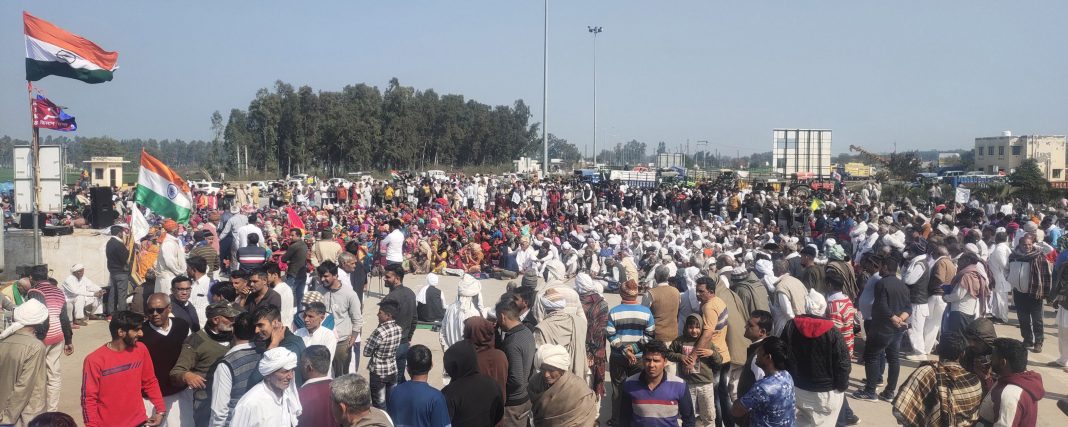By Vivek K Agnihotri
As Budget Session, 2021, got into stride, senior Congress leader Jairam Ramesh said that if Prime Minister Narendra Modi was willing to suspend implementation of the farm laws for 18 months, why not give the same time to a parliamentary standing committee to “examine” them and report back to Parliament.
The farm laws have been suspect in the eyes of the Opposition. The fact that they were rushed through with three ordinances promulgated by the president on June 5, 2020, and got the final nod of Parliament “hurriedly” amidst din in the Rajya Sabha on September 20, 2020, did not add to their credibility.
As far as Department Related Standing Committees (Standing Committees) are concerned, they were primarily established to consider the demands for grants of related ministries/departments and report thereon. This is against the backdrop of the budgets of only a few select ministries/departments getting the attention of the full House each year due to shortage of time and the demands for grants of the rest being “guillotined” in a single lot on the last day. The number of these committees expanded from three to 24 between 1989 and 2004. At present, all ministries/departments are distributed across these 24 Standing Committees without exception.
As far as the examination of legislation is concerned, the Rules of Procedure and Conduct of Business in both the Houses provide that these Standing Committees may “examine Bills, pertaining to the related Ministries/Departments, referred to the Committee by the Speaker or the Chairman, as the case may be, and report thereon”. Thus, there are two conditions attached to the examination of legislation by the Standing Committees. First, they can examine only Bills, not Acts per se. Second, the Bill pertaining to the legislation to be examined has to be referred to the Committee by one of the presiding officers of the two Houses.
The other functions of the Standing Committees comprise consideration of the annual reports of the ministries/ departments and national basic long-term policy documents presented to the Houses if referred to them by the Chairperson or the Speaker, as the case may be, and report on them.
The examination of demands for grants primarily takes place by way of a set or sets of questions sent by the Standing Committee to the concerned ministry/department and discussion on the replies received. Oral evidence of the officials concerned is also taken. This exercise takes place during the recess of 4-6 weeks that follows the first part of the Budget Session, i.e. January 29 to February 15, 2021, in the current Session. The Standing Committees also routinely examine annual reports of the ministries/departments by identifying specific issues of current importance from time to time.
Since direct reference of the farm laws for examination by the Speaker to the Standing Committee is out of the question, what Ramesh perhaps had in mind is to let the Committee on Agriculture, which is inter alia concerned with the ministry of agriculture and farmers’ welfare, take up the examination of the laws in the garb of examination of demands for grants or of an issue arising out of the annual report of that ministry.
The well-worn legal maxim “Quando aliquid prohibetur ex directo, prohibetur et per obliquum (you cannot do indirectly what you cannot do directly)”, epitomises the doctrine of colourable legislation and is a corollary to the principle of separation of powers. Thus, if the rules of the two Houses empower the Standing Committees only to examine the Bills, they cannot now take it upon themselves to examine the Acts after they have been passed by Parliament and received assent from the president. The doctrine of separation of powers cannot be fenestrated in arbitrary application of the principle of checks and balances.
An opportunity to directly examine the farm laws may arise if, as and when the executive brings some amendments to them for approval of Parliament. If the presiding officer of the House in which the amendment Bills are introduced chooses to refer them to the Committee for examination, it may then legitimately recommend further changes in those laws (including repeal) for the consideration of Parliament. On the other hand, during the scrutiny of the demand for grants of the ministry of agriculture and farmers’ welfare, the questions to be fielded could be cleverly crafted to achieve the objective of making some recommendations for amendments to the laws.
The rules of the two Houses say: “The report of a Standing Committee shall have persuasive value and shall not be treated as considered advice given by the Committee.” The recommendations of the Committee, therefore, are only suggestions for the government to accept or reject. However, reports of the Committee are taken as “influential advice” and the ministry/department concerned is required to take action on the recommendations and furnish action. The minister concerned too makes, once in six months, a statement in the House regarding the status of implementation of recommendations.
In any case, the matter currently is sub judice. The Supreme Court, while staying the implementation of the farm laws, has ordered the formation of a committee which will submit a report to it after hearing all the parties and stakeholders. The surreptitious examination of the Acts by the Standing Committee too may, in most likelihood, take the same route of taking the evidence of experts. It would, therefore, be in the fitness of things for all concerned to await the decision of the Court before deciding the future course of action.
—The writer was Secretary, Parliamentary Affairs from 2003-2005 and Secretary General of Rajya Sabha from 2007-2012
Lead Picture: UNI


